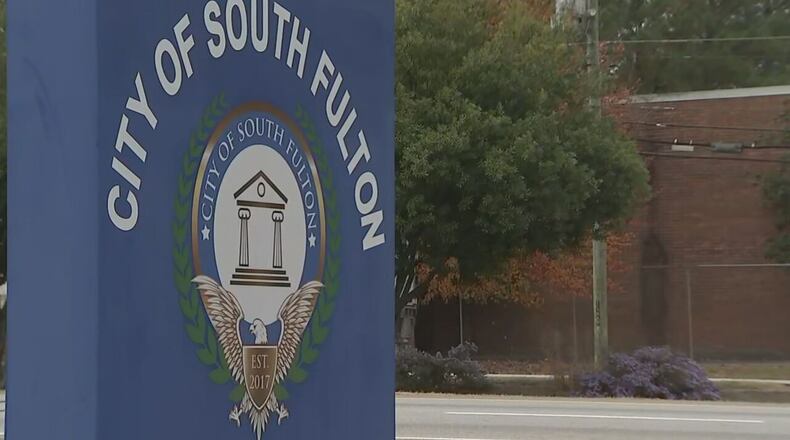Some neighborhoods in South Fulton that lack sewer service have “very strong advocates” for adding those lines, South Fulton City Councilwoman Catherine Foster-Rowell said Tuesday night.
She and Fulton County Commissioner Khadijah Abdur-Rahman held a town hall Tuesday at the Evelyn G. Lowery Library in South Fulton to address about two dozen residents, plus more in attendance via Zoom.
Most of the houses in South Fulton built before 1980 have septic systems, said David Clark, Public Works director. Some homeowners don’t want the expense of connecting to sewer service, and that’s fine so long as their septic systems are maintained, he said.
“We are not involved in septic tanks at all. That is completely handled by the Fulton County Board of Health,” Clark said.
On average it costs $5,000 to $6,000 per home to connect to sewer, Clark said.
“Sanitary sewer is a very expensive undertaking, especially in established neighborhoods,” he said.
County commissioners have a longstanding program to extend sewer service into existing development, but half-plus-one of the affected area’s property owners must agree to start the process, Clark said.
It starts with a petition and financial pledges from homeowners. If that reaches the required threshold, county commissioners will approve the project.
Immediately afterward, property owners must pay an assessment of $20 per linear foot of frontage – usually around $2,000, Clark said. Everyone in the affected neighborhood must pay that assessment, even if they don’t connect to the sewer line, he said.
After commissioners approve an area’s petition, building the sewer line takes a year and a half to two years, Clark said. They’re working on ways to streamline that, hoping to get the time down to less than a year, he said.
Once sewer mains are installed along the street, each homeowner who wants to connect must hire a plumber to run a sewer line from the house to the main, Clark said. That averages $3,000.
There is no federal or county program available to help homeowners with sewer costs, but there are “a couple of avenues” for private funding that Public Works can help people investigate, he said.
Terry Peters, Public Works deputy director for technical services, said the county’s finance department can work out an installment plan for residents on low or fixed incomes.
Once sewer mains are installed, homeowners who didn’t connect at first can sign on at any time, Clark said.
Sewer service costs about $45 a month for family of four, he said.
Typically sewer is installed in neighborhoods of 10 to 50 houses, but there’s no minimum size, he said; they’ve done projects as small as six or eight houses.
About the Author
Keep Reading
The Latest
Featured


